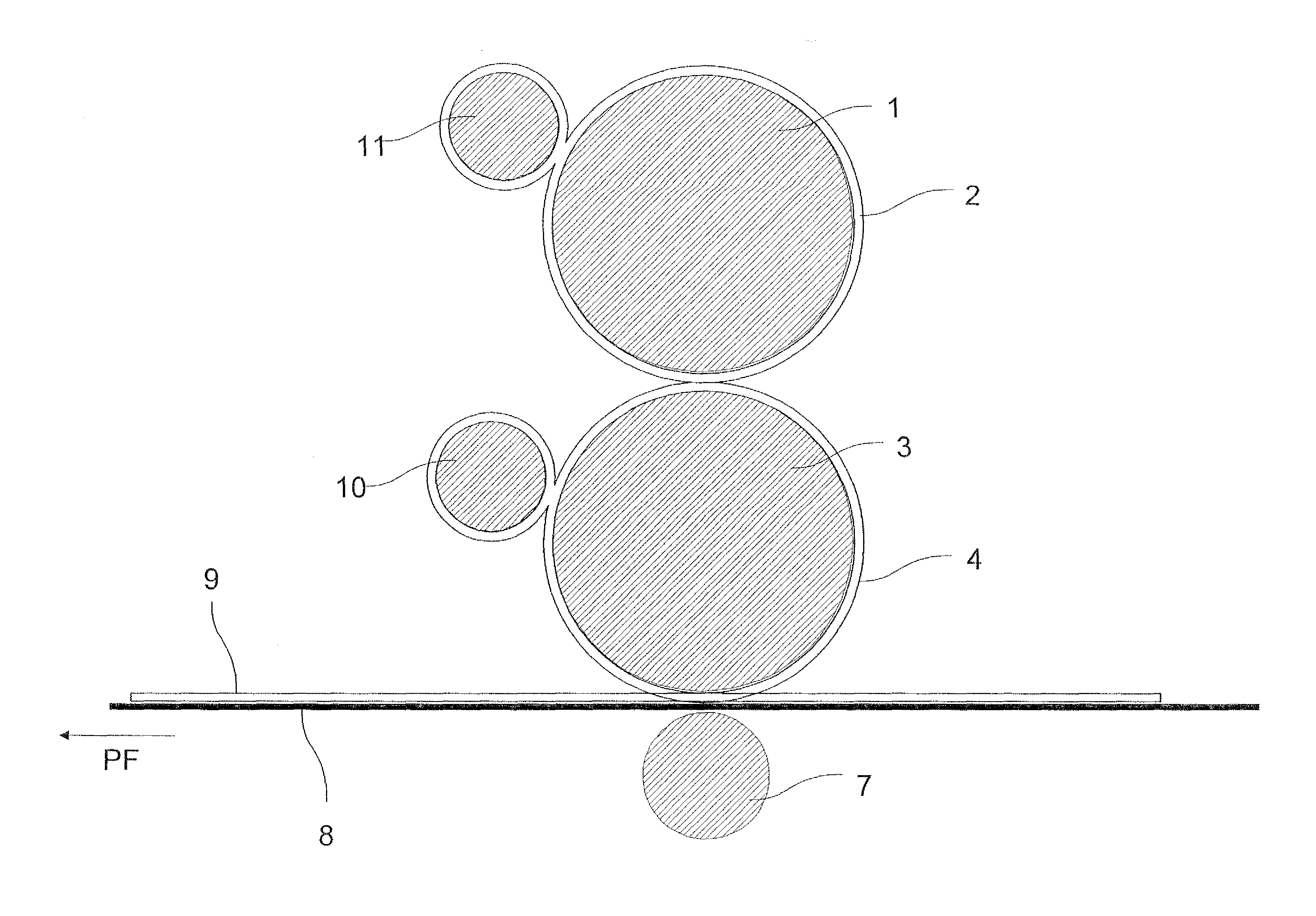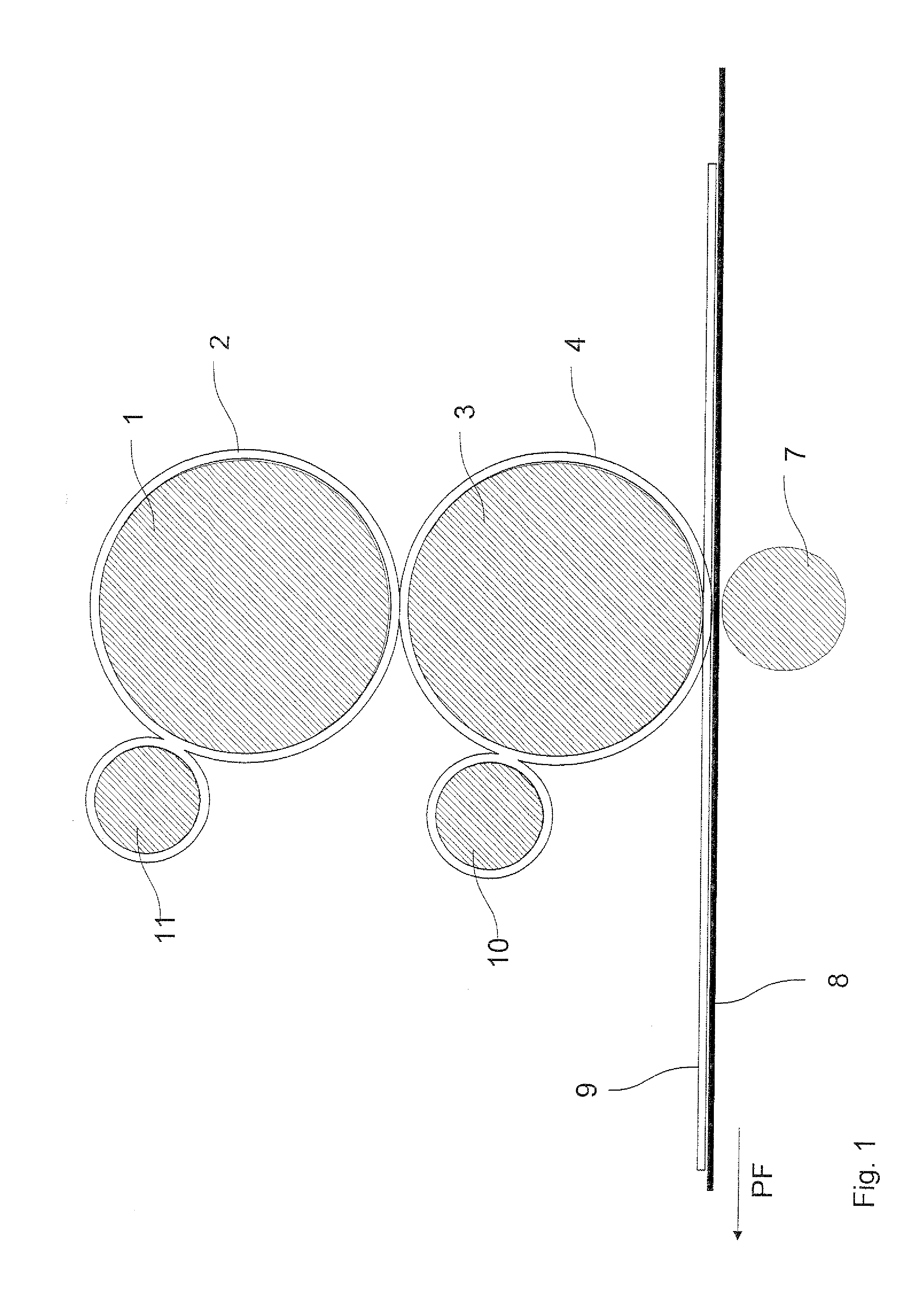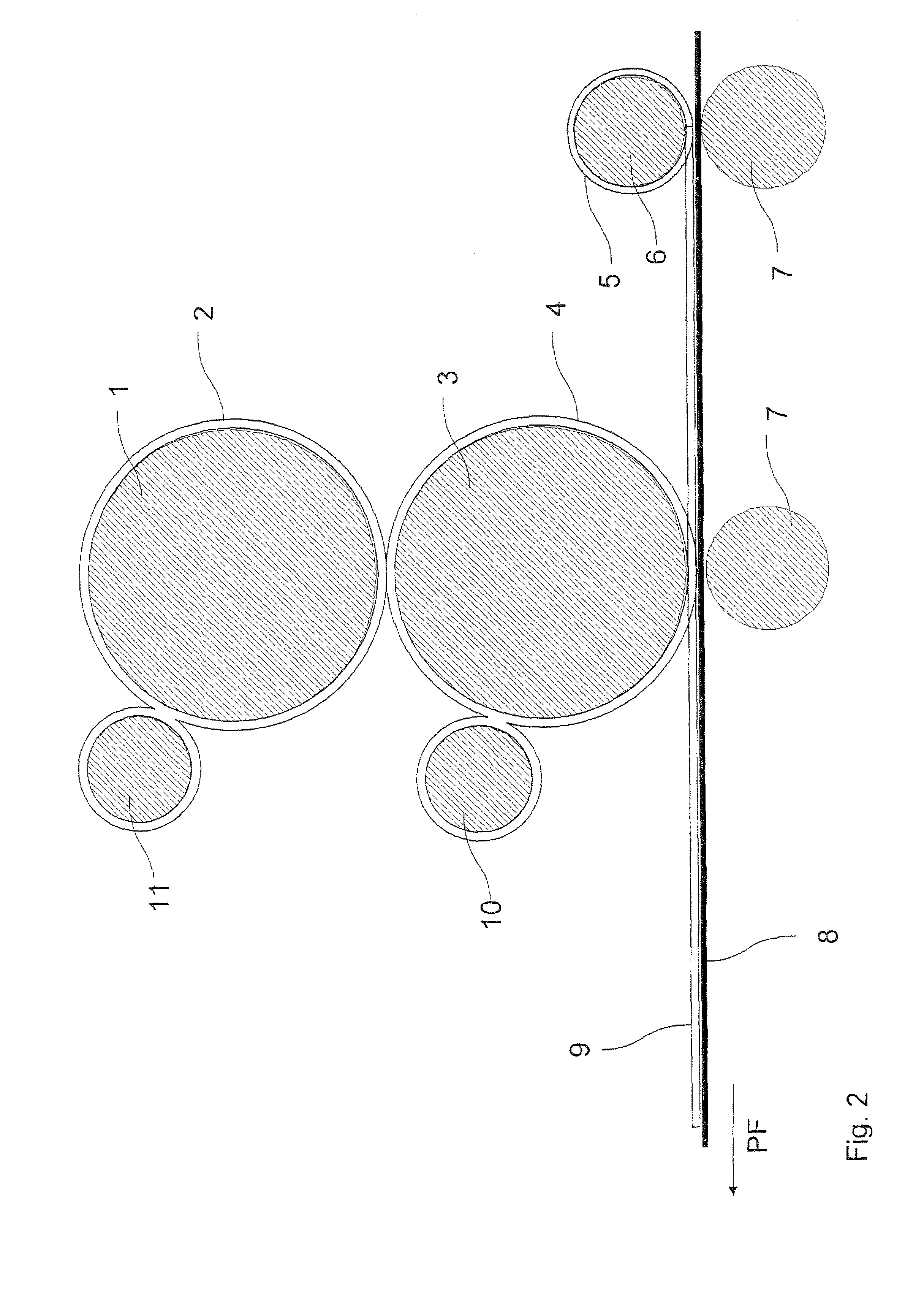Toner for printing method and method for electrophoretic printing process
a printing method and electrophoretic printing technology, applied in the field of new toners, can solve the problems of high cost of this kind of method, substrat wetness, and not always completely avoided from wetting the substrate with high-boiling carrier liquid
- Summary
- Abstract
- Description
- Claims
- Application Information
AI Technical Summary
Benefits of technology
Problems solved by technology
Method used
Image
Examples
Embodiment Construction
[0041]As shown in FIG. 1, non-polar carrier liquid is transferred together with the amphiphilic toner according to this invention by an applicator roller (11) to a charge image carrier (1). On the charge image carrier (1), the carrier liquid with toner dispersed therein and other components such as binder and additional pigment particles forms a uniform thin-film. The charge image carrier (1) is moved anticlockwise and comes into contact with a transfer roller (3). This transfer roller (3) is provided with a delivery roller (10) for delivering a polar liquid such as for example water or the other above-mentioned solutions. A thin film of the polar liquid is formed on the surface of the transfer roller by this delivery roller (10). Upon contact between the transfer roller (3) and the charge image carrier (1), the polar and non-polar solutions encounter each other, the amphiphilic toner due to its properties of dissolving in the polar solvent becoming dissolved therein and migrating i...
PUM
 Login to View More
Login to View More Abstract
Description
Claims
Application Information
 Login to View More
Login to View More - R&D
- Intellectual Property
- Life Sciences
- Materials
- Tech Scout
- Unparalleled Data Quality
- Higher Quality Content
- 60% Fewer Hallucinations
Browse by: Latest US Patents, China's latest patents, Technical Efficacy Thesaurus, Application Domain, Technology Topic, Popular Technical Reports.
© 2025 PatSnap. All rights reserved.Legal|Privacy policy|Modern Slavery Act Transparency Statement|Sitemap|About US| Contact US: help@patsnap.com



